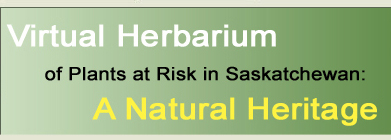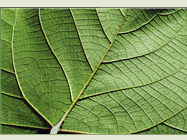
|

|

|

|

|

|

|
|
|
|
|
|
| Nymphaea leibergii Morong. | Species Image Gallery (opens in a new window) |
||||||||||||||
| TAXONOMY | |||||||||||||||
| Family: | Nymphaeaceae | ||||||||||||||
| Genus: | Nymphaea | ||||||||||||||
| Species Synonyms: | Nymphaea tetragona ssp. leibergii
(Morong) Porsild Nymphaea tetragona var. leibergii (Morong) Boivin |
||||||||||||||
| Common Names: | Leiberg’s waterlily small white waterlily pygmy waterlily |
||||||||||||||
| DISTRIBUTION | |||||||||||||||
| Canada: | British Columbia – southern Mackenzie District – Alberta – northern and central Saskatchewan – Manitoba – Ontario – eastern Quebec | ||||||||||||||
| Saskatchewan: | northern and central Saskatchewan; Lake Athabasca – Cumberland House | ||||||||||||||
| Ecoregion: | Mid-Boreal Upland, Mid-Boreal Lowland, Athabasca Plain, Churchill River Upland | ||||||||||||||
| HABITAT | |||||||||||||||
| Saskatchewan: | aquatics in quiet waters of lakes and streams | ||||||||||||||
| Canada: | ponds and quiet waters | ||||||||||||||
| RARITY STATUS | |||||||||||||||
| Provincial
Status According to Harms (2003): |
Threatened |
||||||||||||||
| Nature Conservancy Status: | G5 |
||||||||||||||
| Saskatchewan
Species at Risk Status: |
None |
||||||||||||||
| COSEWIC Status: | None |
||||||||||||||
| Leiberg’s waterlily is threatened because it is rare or uncommon in Saskatchewan. No threats are known or anticipated. | |||||||||||||||
| SPECIES DESCRIPTION | |||||||||||||||
| Roots: | rhizomes unbranched, erect, cylindrical | ||||||||||||||
| Stems: | runners absent | ||||||||||||||
| Leaves: | blade 3 –12 cm long, 2 – 10 cm wide, elliptic in outline, basal lobes tapered to a point, venation palmate, principal veins 7 – 13, green above, green to purple below, hairless, margin entire; leaf stalk hairless | ||||||||||||||
| Inflorescence: | solitary, floating, opening in the morning, 3 - 8 cm diameter | ||||||||||||||
| Flowers: | odourless; sepals 4, to 8 cm long, green, lines of insertion on receptacle not prominent; petals 8 – 15, tip obtuse, white, may have purplish lines; stamens 20 – 40, yellow, widest above the middle, filaments longer than anthers; ovary compound; appendages at margin of stigmatic disk tapered, 0.5 – 1.5 mm long; stigmas 6 – 9 | ||||||||||||||
| Fruits: | seeds 3 mm long, ovoid | ||||||||||||||
| |||||||||||||||